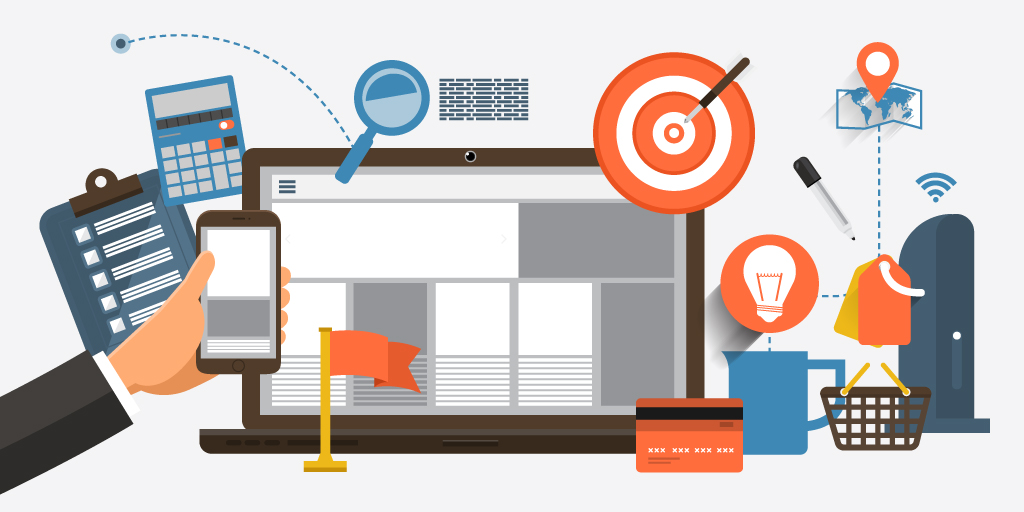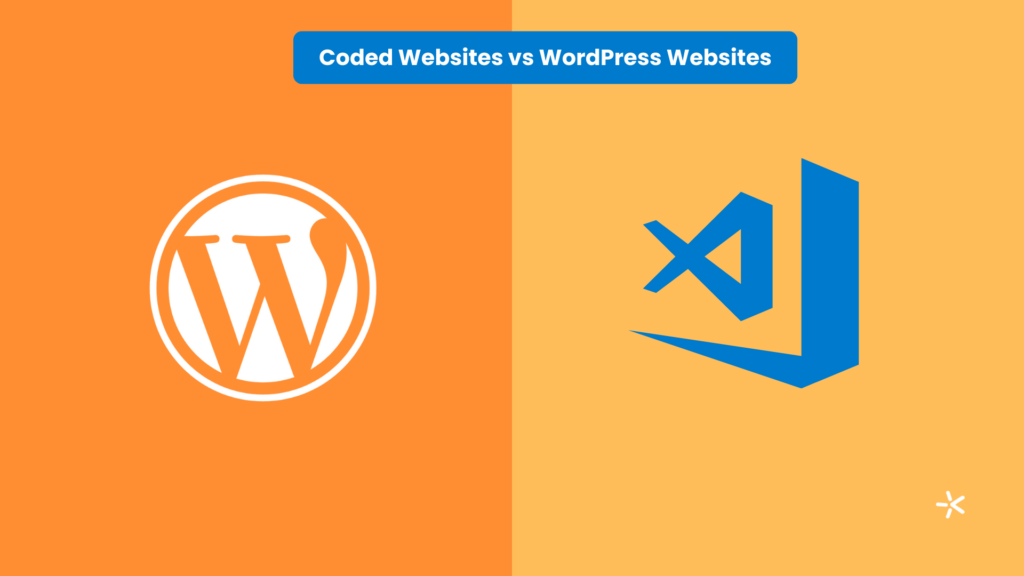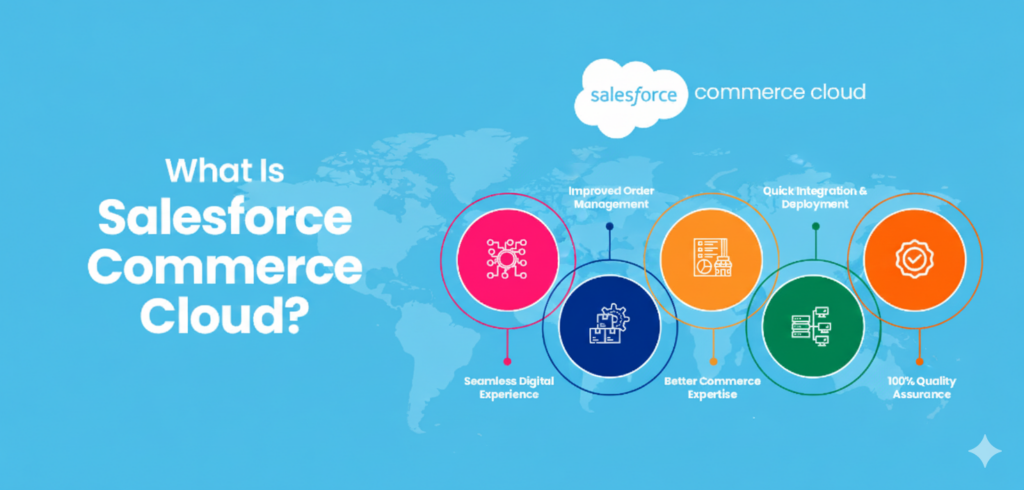Research shows that companies get almost 300% return on investment when they use Salesforce Marketing Cloud, or SFMC for short. |
When your business is into marketing, choosing the right marketing platform is a big decision since your customers are active across emails, social media, websites, and mobile apps. Reaching them with the right message at the right time can feel tedious. And so — Salesforce Marketing Cloud (SFMC) is built to solve this challenge.
Fact: This tool was originally called ExactTarget. Now, Marketing Cloud has evolved into a complete solution that connects easily with Salesforce CRM.
It’s a powerful digital marketing platform that helps you manage, automate, and personalise customer communication across multiple channels — all in one place. In this blog, we’ll break down everything you need to know about Salesforce Marketing Cloud — We’ll talk about
- Practical uses of SFMC
- Benefits of SFMC
- Modules (Studios & Builders, including Journey Builder)
- Costs of SFMC
- Features of SFMC in 2025
- How does it work
- Who should use SFMC
- And is it worth investing in?
Let’s dive into it.
Salesforce Study claims that
|
You can integrate Salesforce Marketing Cloud into your workflows, as it can perform different marketing tasks. This includes:
- Email marketing: It can draft personalised emails and send email campaigns.
- Content management: You can easily manage everything from landing pages, forms, and images in one place.
- Mobile marketing: You can send push notifications, messages (in-app) and even SMS.
- Advertising: You can run targeted online ads and find new customers.
- Campaign automation: You can design complex, multi-channel campaigns and customer journeys.
- Data management: You can import, clean, and use customer data across channels for better targeting.
- Website personalisation: It can be used to create web pages dynamically based on customer behaviour.
1. Personalised Customer Experiences
With advanced segmentation and AI tools, Marketing Cloud can be used to personalise messages for each customer based on their behavior, preferences, and purchase history. This can benefit you with stronger engagement and higher conversion rates.2. Omnichannel Marketing
You can reach customers through multiple channels — whether it’s email, SMS, social media, ads, or websites. And all of this can be managed from one platform. This means that your prospects/ customers will receive consistent marketing material across every touchpoint.3. Automation of Complex Workflows
With complex processing ability, the Marketing Cloud can save you time and reduce manual work by automating customer journeys, campaign triggers, and data flows. This will make your marketing teams more efficient.4. Real-Time Data and Analytics
One of the biggest benefits of mthe arketing sales cloud is that you get real-time reporting and insights. This helps you quickly measure campaign performance, track customer actions, and adjust strategies for better results.5. Integration with Salesforce CRM
If you’re already using Salesforce CRM, Marketing Cloud integrates easily. This will give you a complete view of customer interactions across marketing, sales, and service by bringing together all the data in one place. With this, you can see how customers are engaging with your marketing campaigns, what they’re buying from your sales team, and how they’re interacting with your customer service.6. AI-Powered Recommendations
Salesforce uses Einstein AI to help predict how customers will behave based on their past actions. This allows you to understand what products or services they are most likely to be interested in next. With these insights, you can send them personalised recommendations at the right time. Einstein AI also helps by suggesting the best times to send emails or messages, making sure your marketing efforts are more effective.| Claim: With SFMC, you can save 60% of the time spent building and running marketing campaigns. Source: Salesforce |
What Modules are Used Inside Marketing Cloud?
Salesforce Marketing Cloud is organised into specialised modules called Studios and Builders. Each module handles specific tasks like campaign management, customer journey automation, data segmentation, and performance analytics.
1) Marketing Cloud Studios
In Salesforce Marketing Cloud, Studios are modules that manage particular channels or content types. Each studio is crafted for a special function.
Examples:
- Email Studio lets you design, build, and send personalised email campaigns.
- Mobile Studio helps you manage SMS, push notifications, and mobile interactions.
- The Advertising Studio can help you create ads based on CRM data and find new audiences on platforms like Facebook and Google.
- Web Studio lets you manage landing pages, microsites, and web forms using CloudPages.
- By using the Automation Studio, you can build automated marketing workflows and handle data management activities like importing files, running SQL queries, or filtering audiences.
2) Marketing Cloud Builders
Builders are tools inside SFMC that handle data management, personalisation, and customer journey automation.
Here are a few examples:
- With Journey Builder, you can easily plan and automate the customer journey across different channels.
- You can use Content Builder to create, organise, and reuse content like emails, landing pages, and templates.
- Contact Builder will help you organise customer data and create powerful segments for targeting.
- With Analytics Builder, measuring and analysing marketing performance with dashboards and reports becomes possible.
- You can use BrandBuilder to customise your Marketing Cloud account by adding logos and choosing themes.
Note: Builders & Studios Work Together.
Although builders and studios are two different modules present in SFMC, they work in one flow. For example, Journey Builder uses emails made in Content Builder to create automated journeys for customers.
Looking for a Salesforce Solution ?
We have a team of qualified salesforce devoloper who can help you with anything related to Salesforce development, customisation, integration, and support. Whatever your needs are, we’re here to make sure Salesforce works perfectly for your business.
Journey Builders in SFMC
Journey Builder in Salesforce Marketing Cloud allows you to design and automate customer journeys across multiple channels. It provides a visual interface to create personalised experiences based on customer behaviour, preferences, and interactions.
For example,
- An Onboarding Journey helps welcome new customers with a series of personalised messages, including a welcome email, product tutorials, and special offers. This helps build a strong relationship from the start.
- The Post-Purchase Journey focuses on keeping the conversation going after a sale. You can send thank-you messages, ask for feedback, and offer exclusive discounts to encourage repeat purchases and long-term loyalty.
- A Product Upsell Journey is designed to increase sales by recommending related or upgraded products to customers based on their purchase history. This can help you boost revenue while offering more value to your customers.
- If a customer abandons their cart, the Abandoned Cart Journey can automatically send reminder emails with product recommendations or limited-time offers to encourage them to complete their purchase.
- The Re-engagement Journey targets customers who haven’t interacted in a while, sending special offers or exclusive content to win them back.
With Journey Builder, you can easily create these journeys to increase customer experience and drive better business results.
Features of Salesforce Marketing Cloud
Salesforce Marketing Cloud has many features that will help marketers to be more efficient and effective. It includes
- Audience Segmentation
- AI-Powered Insights
- Email Marketing Automation
- Journey Builder
- Predictive Analytics
- Customer Data Platform (CDP)
- Social Media Integration
- Personalization Engine
- Mobile Marketing
- Campaign Tracking
- A/B Testing
- Marketing Automation
- Cross-Channel Marketing
- Reporting and Analytics
- Content Management
- Integration with Salesforce CRM
In short, Salesforce Marketing Cloud gives you everything you need to connect with customers more personally and effectively
How Does Salesforce Marketing Cloud Work?
Salesforce Marketing Cloud connects customer data, content, and marketing automation all in one place. Here’s how it works:
- Data Collection: The process starts by pulling customer information from CRM, websites, apps, or external sources into Marketing Cloud.
- Segmentation: It then organises customers into smart lists based on behaviour, demographics, or interests.
- Content Creation: Once segmented, you can build emails, landing pages, SMS messages, and ads using templates and AI suggestions.
- Journey Building: Then, map out the customer journey across channels (like welcome emails followed by a discount offer).
- Automation: Set up workflows that automatically move customers through different steps based on their actions.
- Personalisation: It will deliver dynamic content — showing different offers, images, or texts based on customer data.
- Analytics and Reporting: You can track campaign performance in real-time, adjust strategies, and report results.
How Much is Salesforce Marketing Cloud?
| Plan | Price | Features |
| Starter Suite | $25 USD/User/Month | Dynamic Email Marketing, Sales Processes, Customer Service, Shop Front Builder |
| Marketing Cloud Growth Edition | $1,500 USD/Org/Month (Billed Annually) | Agentforce Campaigns, Multi-Channel Journeys, Forms, and Landing Pages |
| Marketing Cloud Advanced | $3,250 USD/Org/Month (Billed Annually) | Agentforce Campaigns, AI Scoring, Path Experimentation, Unified Conversational SMS |
- Prices may change over time. The prices listed are as of April 2025.
- Other modules like Datorama, Interaction Studio, and Audience Studio might be priced separately.
- Salesforce usually charges per number of contacts you want to reach, and extra features like AI (Einstein) or deeper analytics can increase the price.
How to Access Marketing Cloud Salesforce?
Once you purchase Salesforce Marketing Cloud, you’ll get login credentials to the Marketing Cloud account. You can access it by:
- Go to the Marketing Cloud login page.
- Enter your username and password.
- Once inside, you’ll see the dashboard, with access to all Studios and Builders from the top navigation bar.
If you’re already using Salesforce CRM, you can also integrate it with Marketing Cloud using Marketing Cloud Connect. This syncs your customer data directly between CRM and Marketing Cloud for a more unified experience.
Need Help With Salesforce Marketing Cloud?
We have Salesforce developers who can help you set up, customise, integrate, and manage your Salesforce Marketing Cloud to fit your business needs.
Who Should Use Marketing Cloud?
Salesforce Marketing Cloud is a great choice if you:
- Run B2C (business-to-consumer) marketing and sell products directly to customers.
- Plan to integrate marketing closely with your sales and customer service teams.
- Need to manage large contact lists across multiple channels like email, SMS, ads, and web.
- Want personalised, automated customer journeys.
- Need to analyse marketing campaigns easily with strong reporting tools.
- Have a marketing team ready to learn (or invest in training) to use the platform well.
- Have a budget for a premium marketing solution.
It’s ideal for retailers, e-commerce companies, financial services, healthcare companies, media agencies, travel businesses, and any organisation that needs strong marketing.
Final Thoughts — Is SFMC Worth the Investment?
Yes! Salesforce Marketing Cloud (SFMC) offers everything businesses need to manage marketing campaigns and connect with customers across various channels. It automates tasks, delivers personalised content, and makes it easy to track results.
With features like AI-powered insights and seamless integration with Salesforce CRM, SFMC helps businesses engage customers, increase sales, and enhance marketing strategies. Whether automating journeys or analysing performance, Salesforce Marketing Cloud is a powerful tool that can significantly improve your marketing efforts.






